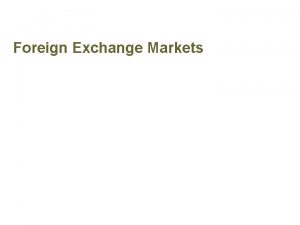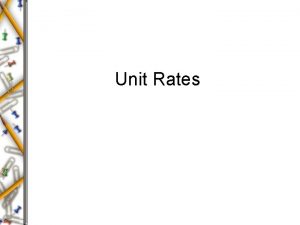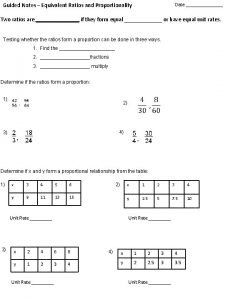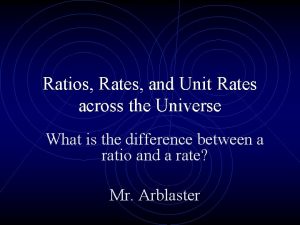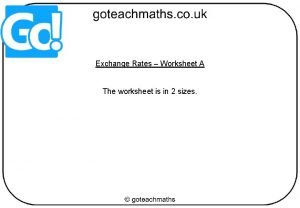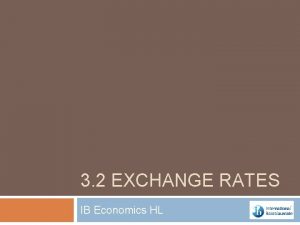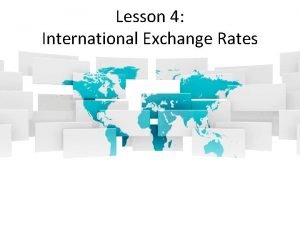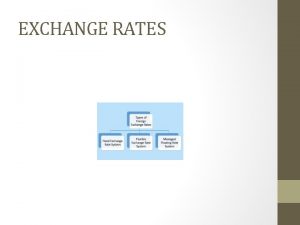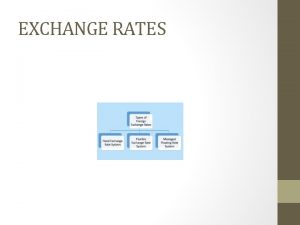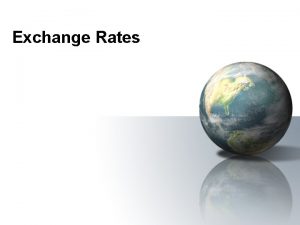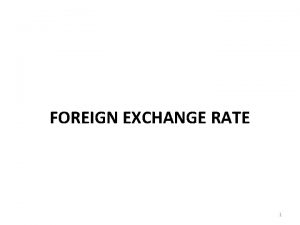CH 4 INTRODUCTION TO EXCHANGE RATES EXCHANGE RATE








- Slides: 8

CH. 4 INTRODUCTION TO EXCHANGE RATES

EXCHANGE RATE QUOTATIONS • A foreign exchange rate is a price of a currency. • A foreign exchange quotation is a statement of willingness to buy or sell at an announced rate. • Interbank quotations are given as ‘Bid’ & ‘Ask’. • A Bid is the exchange rate in one currency at which the dealer will buy another currency. • An Ask rate is the exchange rate at which a dealer will sell another currency.

Types of Foreign Exchange Quotations • Direct Quote: Direct quote is also known as price quotation. Under direct quote, the variations of the exchange rates are inversely related to the changes in the value of domestic currency. When the value of domestic currency rises, the exchange rate falls & vice versa. • Indirect Quote: Indirect quote is also known as quantity quotation. Under indirect quote, the variations of the exchange rates are directly related to the changes in the value of domestic currency. When the value of domestic currency rises, the exchange rate also rises & vice versa.

• Inter-bank Quote: The quote used by the banks to purchase or sell the foreign currency. • Mid Quote: It is also known as reference rate. It is the average of the Bid Rate & Ask Rate. • Spot Quote: In this quote, the payment or the receipts are done on the spot. • Cross Currency Rate: It includes the currency of three different countries that are to be converted. • Spread Quote: It is the difference between Bid Rate & Ask Rate.

Determinants of Exchange Rate • Demand & Supply: The foreign exchange rate is determined by demand for & supply of foreign exchange. Any change in demand & supply will result in a change in exchange rate. • Inflation: It is one of the most important factors that affect the exchange rate. A low inflation rate scenario will show a rising currency rate as the purchasing power of the country will increase

• Interest Rate: Inflation & Interest rates are very corelated. Higher inflation usually means higher interest rates in an economy. High interest rates bring in more investment from overseas as the returns are higher than countries with low interest rates. • Current Account Deficits: A negative BOP or a deficit in the current account shows that the country is importing or spending more on foreign trade than exporting or earning from abroad. This excess demand foreign currency lowers the country’s exchange rate.

FOREIGN BANK NOTE MARKET • Nostro – ‘ours’. A Nostro is our account of our money held by you. • Vostro – ‘yours’. A Vostro is your account of your money held by us. • Loro – ‘theirs’. A Loro is our account of their money held by you.

